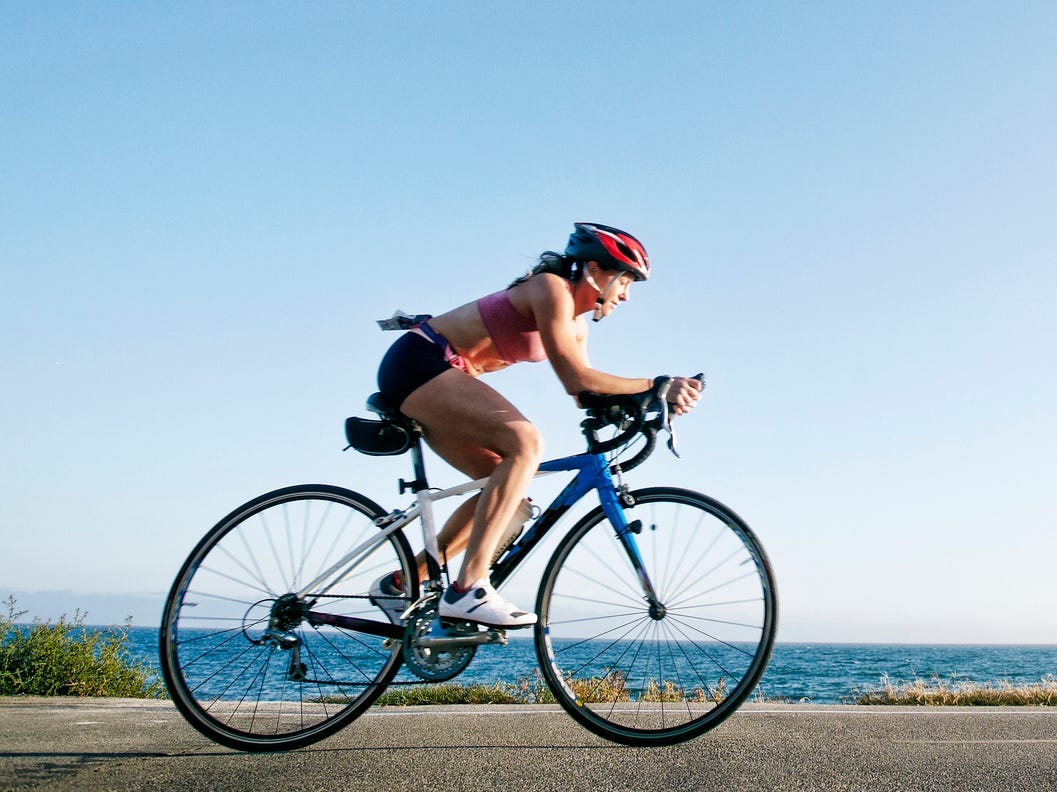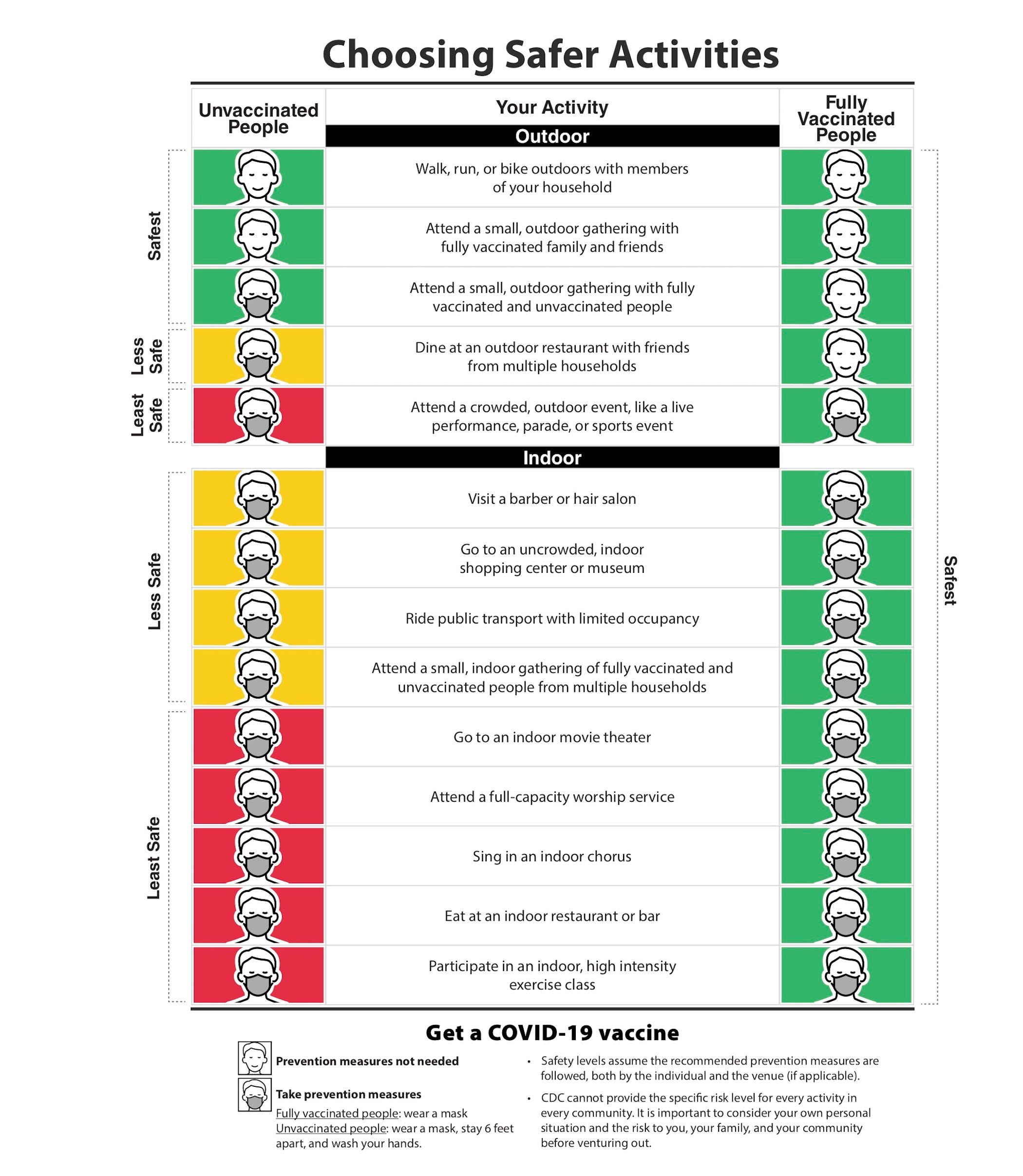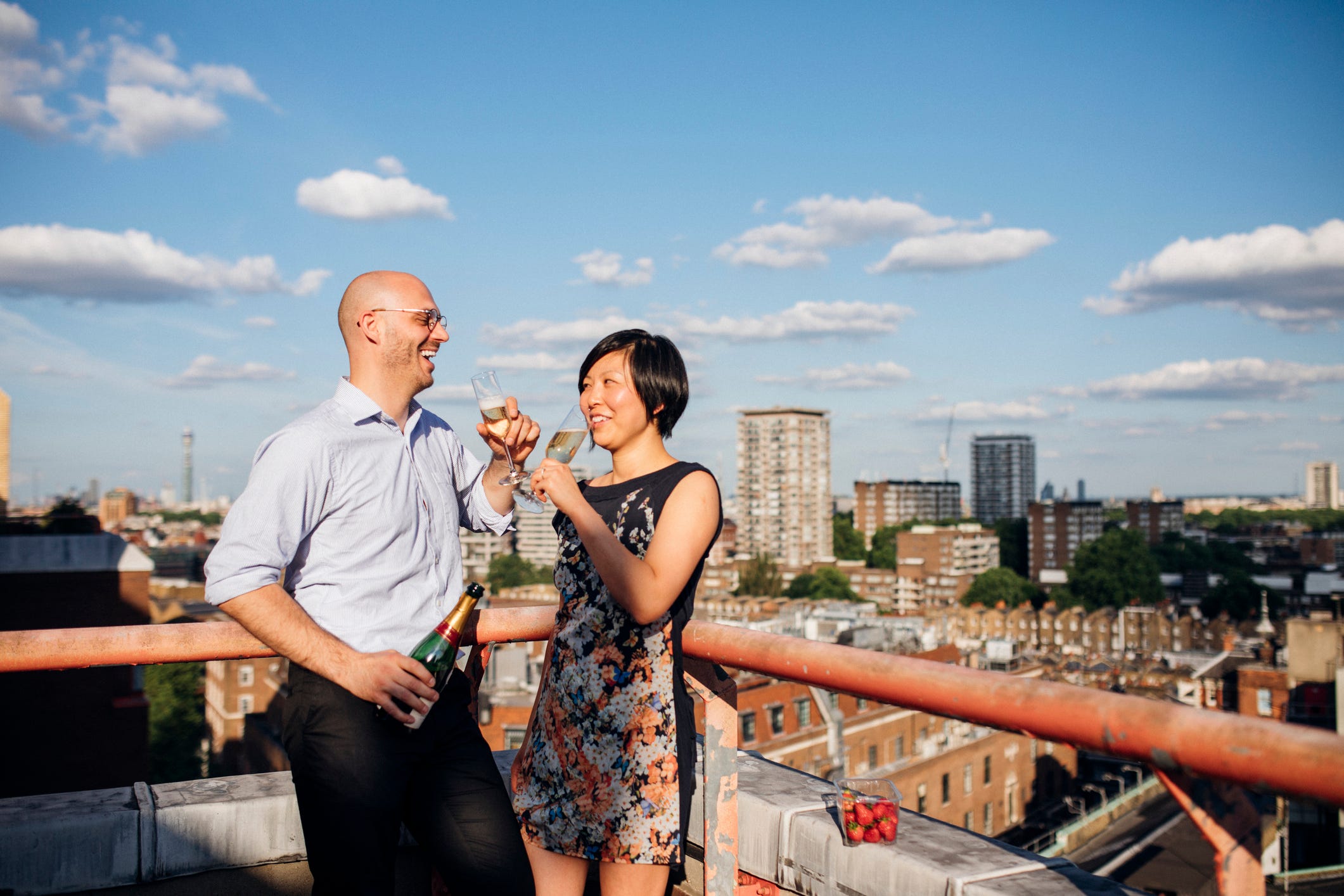
- The CDC on Tuesday started loosening outdoor mask guidelines for fully vaccinated people.
- The agency said it's OK for those people to go maskless for outdoor exercise, picnicking, or dining.
- The CDC still wants everyone to wear masks in some cases, though outdoors is considered much safer.
- See more stories on Insider's business page.
The Centers for Disease Control and Prevention is starting to let fully vaccinated Americans know: It's OK to take off your mask outside – in certain situations.
On Tuesday the CDC released its first recommendations for "unmasking" fully vaccinated people outdoors. It's another early step, in the agency's eyes, toward resuming some facets of public life that were once deemed unsafe because of the pandemic, now that nearly 30% of the US is fully vaccinated.
"If you are fully vaccinated, things are much safer for you," CDC Director Rochelle Walensky said at a virtual White House press briefing on Tuesday, announcing the new guidance. "There are many situations where fully vaccinated people do not need to wear a mask, particularly if they are outdoors."
In March, the CDC said it was all right for fully vaccinated people to gather indoors and hug without masks, and earlier this month the agency said domestic travel was safe for the fully vaccinated as long as they wore masks in transit.
The CDC still cautions that some fully vaccinated people may not want to take off their masks outdoors, stressing "it is important to consider your own personal situation and the risk to you, your family, and your community before venturing out without a mask."
CDC gives the green light to exercise outside maskless, even for the unvaccinated

Centers for Disease Control and Prevention
Previously, the CDC recommended face masks for all people when near others they don't live with, whether indoors or outside. That is still the recommendation for people who are not fully vaccinated.
The only previous exception to the public mask guidance was that fully vaccinated people could gather with one unvaccinated household, unmasked, provided no one from the unvaccinated crew was at risk of catching severe COVID-19.
Here's what the CDC says fully vaccinated people can do without a mask on:
- Walking, running, hiking, or biking outdoors alone or with members of your household
- Attending a small outdoor gathering with fully vaccinated family and friends
- Attending a small outdoor gathering with a mixture of fully vaccinated and unvaccinated people
- Dining at an outdoor restaurant with friends from multiple households
The CDC still recommends masks stay on fully vaccinated people in most other social situations, including:
- Attending a crowded outdoor event such as a live performance, parade, or sporting event
- Visiting a barber or hair salon
- Visiting an uncrowded indoor shopping mall or museum
- Attending a small indoor gathering with a mixture of fully vaccinated and unvaccinated people
- Going to an indoor movie theater
- Attending a full capacity service at a house of worship
- Singing in an indoor chorus
Outside, the risks of catching this airborne virus are low

Public-health experts have been stressing for quite a while that the risks of catching or transmitting the coronavirus outdoors are very low.
Muge Cevik, an infectious-disease researcher and science communicator at the University of St. Andrews, recently told Insider that fewer than one in 10 reported COVID-19 cases involved outdoor transmission, "and those are typically associated with prolonged close interactions, or settings where people mix both indoors and outdoors."
Add to that equation a vaccinated person who has allowed a full two weeks for their shot(s) to take effect, and the risks of getting some fresh air without a mask on plunge even lower.
But experts stress it's still prudent to exercise caution in crowds outdoors or in places where not everyone has been vaccinated.

Jan Woitas/picture alliance via Getty Images
"If you're going to be close to other people outdoors and everybody is not vaccinated, then you certainly need to be wearing masks," Don Milton, a University of Maryland professor who is a leading expert on how viruses transmit from person to person, said.
He stressed that sharing food, drinking, and getting close to other people for conversations increased the risks of transmission even while outdoors.
